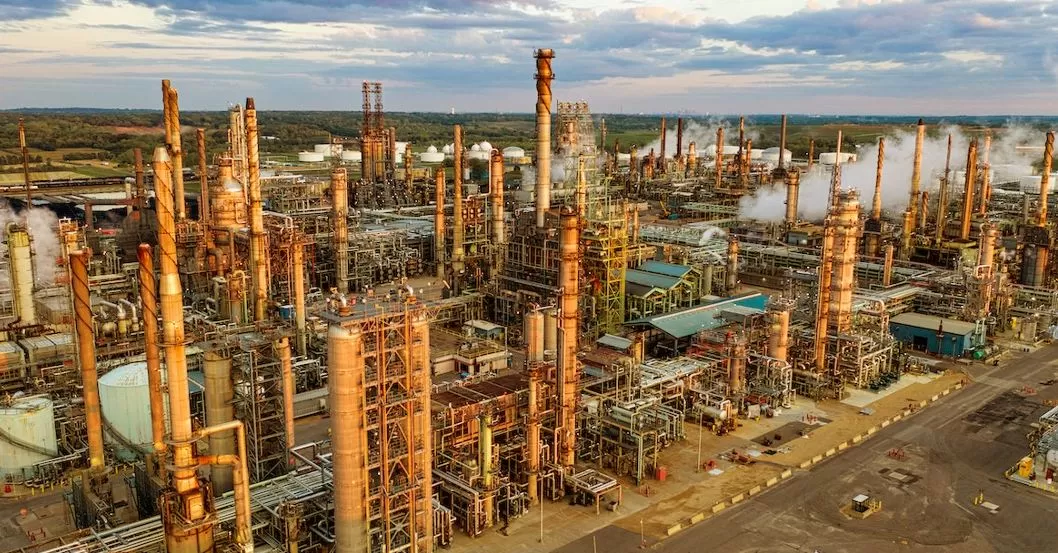Historically, different countries have significant volumes of supply and demand. A combination of these economic shifts and the need to better manage the production and distribution process led to increased use of electronic data management. A website like öl profit is a completely automated cryptocurrency trading platform offering the best features like liquidity, trading tools, and customer support. The process facilitated a faster flow of information with less work on behalf of those trying to organize it.
Blockchains can be a game-changer for some industries as it enables all participants in the network to have access at any time, eliminating centralized points that people can hack. For example, in the oil industry, there is no need to physically exchange documents, as people can exchange information quickly and efficiently.
Blockchain allows for excellent transparency
It also allows for transparency, showing all parties involved all the information stored in the blockchain, but only those with proper permissions can access this data. The technology does not allow room for inconsistencies or ambiguity in how data is shared around the supply chain, as everything is recorded and stored safely.
Since it’s available to all participants on the network, there are fewer errors and more efficient execution of transactions between all parties involved. It also improves the level of traceability and accountability. In addition, data can now be stored and transferred in a way that is verified by all parties concerned, providing an efficient way to connect all the information and data points of the entire network.
Moreover, using blockchain technology could significantly improve the pipeline integrity monitoring system across the United States. Blockchain technology can provide remote users with real-time information about pipeline integrity, with a new insight into problems or any possible situation during transport. Let’s discuss how blockchain can significantly impact the oil industry.
The Effect of Blockchain on the oil industry are as follows
Tokenization of assets
Blockchain technology allows for the tokenization of assets, and as a result, it dramatically enhances the value of all commodities. For an asset to be tokenized and traded on a blockchain platform, it must have some form of liquidity. For example, if gold is being used as a commodity or an asset, or if it’s just something that has been mined in the past to create something new (such as copper), then immediately after creation, it can be traded and exchanged on the blockchain exchange platform. The same goes for any other physical assets or commodities.
Interoperability
Blockchain technology allows for interoperability between different industries and platforms in a near-real-time way. The blockchain platform allows anyone to connect with other people, communities, organizations, and businesses worldwide seamlessly. As long as new participants have the required data points to join the network, they can easily be added by people without interrupting the existing processes on the blockchain platform.
Transparency
Transparency is paramount in the oil industry. All parties involved in the process must understand precisely what is happening at all stages of production. Still, blockchain technology allows for a much more efficient and secure way to store and transfer information than ever before. It leads to fewer errors, such as double counting shipments or fraud of incorrect cost estimates, which are common issues in existing systems. In the oil industry, every part of the transaction must be audited by all parties to ensure consistency of delivery and accountability, which is mainly dependent on the processes in place.
Security
Security is critical in the oil industry. As mentioned above, blockchain can enable information sharing between all parties involved, creating a much more secure environment to share information and data (both sensitive and not). In addition, banks, financial institutions, investors, and traders worldwide use vital components such as cash flow tracking. Blockchain technology can provide them with a much more efficient way to track their incoming money and outgoing payments allowing for greater transparency and security.
Efficiency
Efficiency is a huge issue in the oil industry. To make matters worse, many companies recognize that their businesses are overly dependent on price hikes to remain profitable and competitive. A recent survey of more than 300 companies showed that nearly 40% partially relied on price hikes up to 2020. Blockchain can make this process much more efficient and cost-effective, as it streamlines everything. It includes all aspects of smart contracts but, in the oil industry, smart contracts are mainly used for commodity trading, securities trading, and derivative trading
Profitability
Blockchain technology has already contributed significantly to profitability for nearly every industry, and it will be no different for the oil industry. A significant increase in efficiency means fewer employees are needed to maintain the same level of production and transportation, which lowers operational costs. As we have already mentioned above, it also means fewer expenses are required to maintain the supply chain.
Blockchain technology is a game-changer for all industries, but it can make the oil industry much more efficient and cost-effective by saving money and reducing operational costs. It also allows for more secure data storage and transmission of information between parties involved in the transaction. However, the most important thing here is to understand that blockchain technology has yet to be implemented on a large scale, which means that there are plenty of opportunities for future growth in the oil industry.
